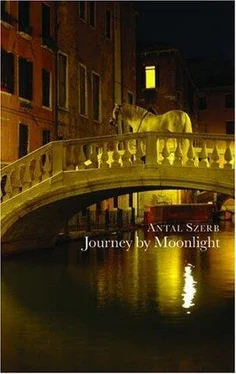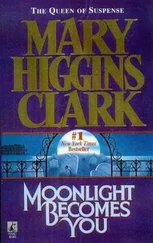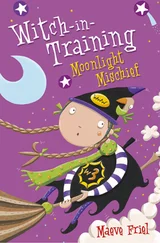He turned. Just at that moment the person loomed round the corner: a huge, dark-clad form. An unnameable fear seized him, and he stepped hurriedly into an alleyway that proved darker and narrower than any so far.
But the alley was blind. He could only turn back to where the stranger was already waiting at the narrow exit. Mihály began a few hesitant steps towards him, but, catching a better view of the man, he stopped in horror. The stranger wore a short, black, circular cape, of the sort common in the last century, and over it, a white silk scarf. On his ancient, soft, oddly crumpled face was a sort of indescribable smile. He spread his arms in a little gesture towards Mihály, and screeched in a thin, neutered voice, “Zacomo!”, or some such name.
“Not me,” said Mihály. The stranger considered this, and a hasty apology passed between them. Mihály could now see that the indefinable smile on the old man’s face was quite witless.
The fact that his escapade had arisen out of a purely irrational fear and had ended on this somewhat comic note, did nothing to reassure him. Rather, given his readiness to find symbolic significance, he concluded from this foolish episode that he was indeed being pursued, and that someone was indeed close on his tracks. In growing panic, he sought out the way back to his lodging, hurried up to his room, shut the door and blocked it with a chest. Even so, the room remained an alarming place. First of all, it was far too big for one person. Second, Mihály couldn’t bear that fact that in Italy the smaller hotels have tiled floors. He felt like a child who had been banished into the kitchen, a harsh enough punishment in itself (though one that in practice could never have happened to him). Third, the room was on the very edge of the hill town. Below the window the cliff fell sheer some two hundred metres, and, defying comprehension, a glass door had been cut beside it into the wall. Perhaps it had at one time opened onto a balcony, but the balcony had either been removed centuries before, or had collapsed from neglect. Only the door remained, opening into the sky two hundred metres up in the air. For any potential suicide this room would have been certain death. The door would have been irresistible. In addition to this, the vast wall was hung with a single picture, an illustration from some picture-book, of a hideously ugly woman dressed in the fashion of the last century, holding a revolver.
Mihály decided that he had slept in more reassuring places. What worried him even more was that his passport was downstairs with the grim-faced, but no less sly-looking, proprietor, who had resisted his cunning suggestion that he fill in the registration form himself on the pretext that his passport was written in an incomprehensible foreign tongue. The innkeeper insisted that the passport should remain in his keeping as long as Mihály continued on the premises. It seemed he had had some bad experiences. The inn was indeed just the sort to guarantee its owner his fair share of those. During the day, Mihály reckoned, probably only down-at-heel revellers frequented the place, while in the evening horse-thieving types guffawed over cards in the so-called sala da pranzo , an eating area pervaded with kitchen smells.
But in whoever’s hands, for whatever reason, the passport was a potential threat to him, betraying his name to his pursuers. Just to make off, leaving the passport behind, would have been as distressing as going out without his trousers on, as we do in our dreams. He lay on the questionably clean bed, feeling very tense. He slept little. A mixture of sleep, dozing and anxious wakefulness blended themselves together into the all-pervasive night-time feeling of being closely followed.
He rose at the crack of dawn, sneaked downstairs, roused the innkeeper after a long struggle, paid his bill, reclaimed his passport, and hurried off to the station. A half-awake woman made coffee for him at the bar counter. After a while, some sleepy labourers came in. Mihály’s anxiety would not leave him. He was in constant terror that someone would arrest him. The appearance of every soldier or policeman fuelled his suspicion, until, at last, the train pulled in. He began to breathe more freely and prepared to abandon his cigarette and climb on board.
Just then a very young and startlingly handsome little fascista stepped up to him and asked for a light before he threw down his cigarette.
“ Ecco ,” said Mihály, and offered him the cigarette. He was entirely off his guard. Especially now that the train had come.
“You’re a foreigner,” said the fascista. “I can tell from the way you said ‘ ecco ’. I’ve a sharp ear.”
“ Bravo ,” said Mihály.
“You’re Hungarian,” the little man beamed up at him.
“ Si, si ,” said Mihály, smiling.
In that instant the fascista seized him by the arm, with a strength he would never have thought possible in such a small person.
“Ah! You’re the man the whole of Italy is searching for! Ecco ! This is your picture!” he added, producing a piece of paper. “Your wife is looking for you.”
Mihály jerked his arm away, pulled out a calling card, and quickly scribbled on it, “I am well. Don’t try to find me,” and gave it, with a ten lire note, to the little fascista .
“ Ecco ! Send this telegram to my wife. Arrivederci !”
Once again he tore himself away from the man, who had renewed his grip, jumped onto the moving train, and slammed the door behind him.
The little train went up to Norcia, in the hills. When he disembarked the Sibilline mountains stretched out before him with their two-thousand-metre peaks. To the right lay the Gran Sasso, Italy’s highest range.
It was fear that had driven him to the mountains, as it once had the builders of those towns. Up there, in the wilderness of ice and snow, they would not find him. He wasn’t thinking now of Erzsi. Indeed he felt that Erzsi, as an individual, had been disarmed by his telegram. But Erzsi was only one of many. It wasn’t so much people that were following him as whole institutions, and the whole dreaded terrorist army of the past.
For indeed, what had been his life during the past fifteen years? At home and abroad he had been schooled in mastery. Not self-mastery, but the mastery of his family, his father, the profession which did not interest him. Then he taken his place in the firm. He had really tried to learn the pleasures befitting a partner in the firm. He had learnt to play bridge, to ski, to drive a car. He had dutifully entangled himself in the sort of love affairs appropriate to a partner in the firm. And finally he had met Erzsi, who was sufficiently talked about in high society for the level of gossip to satisfy what was due to the young partner in a fashionable firm. And he had ended by marrying her, a beautiful, sensible, wealthy woman, notorious for her previous affairs, as a partner should. Who knows, perhaps it needed only another year and he would become a real partner: the attitudes were already hardening inside him like calluses. You start off as Mr X, who happens to be an engineer, and sooner or later you’re just an engineer who happens to be called Mr X.
He made his way on foot up into the hills and meandered around the villages. The natives remained peaceful, did not pursue him. They accepted him as just another crazy tourist. But a middle-class person meeting him on the third or fourth day of his wanderings would have taken him not for a tourist but a madman. He was unshaven, unwashed, and sleeping in his clothes: he was simply a man on the run. And inside, he was utterly in turmoil, up there among the harsh outline of pitiless mountains, the inhuman solitude, the utter abandonment. The faintest shadow of purpose never flickered across his consciousness. All he knew was that there was no going back. The whole horde of people and things pursuing him, the lost years and the entire middle-class establishment, fused in his visionary consciousness into a concrete, nightmarish shape. The very thought of his father’s firm was like a great steel bar raised to strike him. At the same time he could see that he was slowly ageing, his body was somehow caught up in slow but visible processes of change, as if his skin was shrivelling at the speed of a minute hand ticking round a clock. These were the first signs of a delirious fever of the nerves.
Читать дальше












